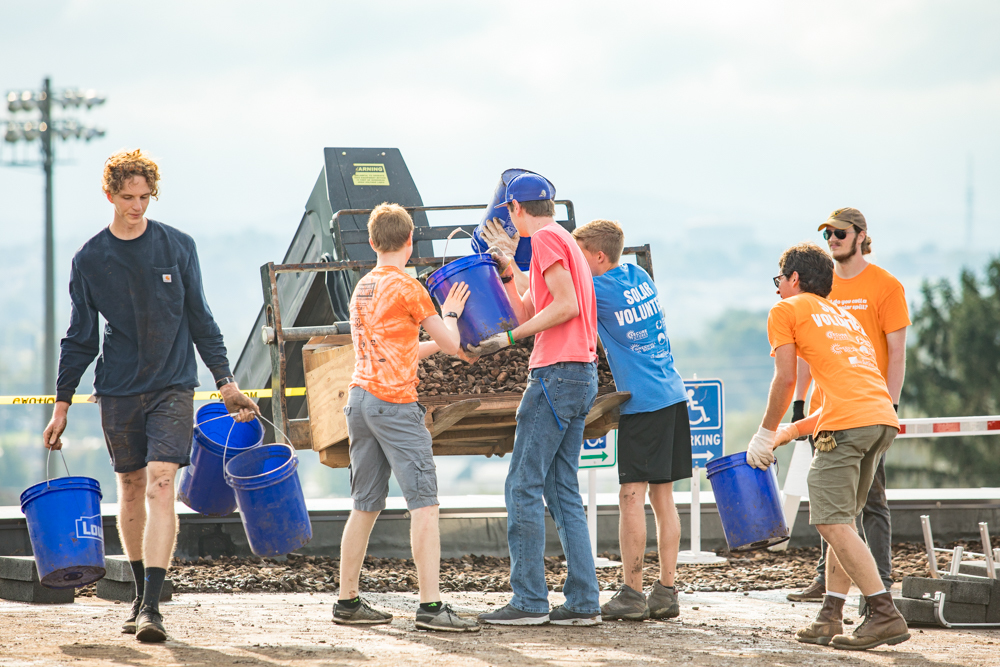A traditional barn raising brings together a group of neighbors to collectively build a barn for a community member in a single day. Eastern Mennonite University students gave the longstanding tradition a 21st century twist Saturday: a solar barn raising.
Around 70 volunteers installed solar panels on the roof of EMU’s University Commons provided by Secure Futures, a solar energy development company based in Staunton.
“It’s the same principle of neighbors or community coming together to build something that would normally take weeks and weeks, and you do it in one day with volunteers,” said Anthony Smith, CEO and president of Secure Futures.
The project has been a student-led initiative by Earth Keepers, an environmental campus organization.
In 2010, Secure Futures helped EMU install solar panels on top of Sadie A. Hartzler Library. A second solar project for the University Commons fell through and a natural gas generator was installed instead.
“That created a lot of energy of students and staff wanting to come together to fund and organize our own solar project,” said Andy King, 20, an EMU junior and co-leader of Earth Keepers. “We felt since one of EMU’s five core missions is sustainability that putting a natural gas generator didn’t really serve that mission and we wanted to live that out in a way and show that we still care.”
Secure Futures donated $50,000 and the students raised money through EMU’s crowdfunding site to help cover the cost of the project, which totaled $120,000. Additional funds came through donations from alumni, area churches and the EMU senior class gift.
The project started out as just adding solar panels to Roselawn, a former dorm that now serves as office and academic space, but the group was able to include the University Commons when Secure Futures came on board. Green Hill Solar, based in Harrisonburg, also was involved in the effor.
“That was really great because it allowed us to effectively double the amount of energy we’re able to produce from this,” King said.
Approximately 200 solar panels, or 65 kilowatts of solar power, were installed on the roof of the University Commons on Saturday from 8 a.m. to 5 p.m.
Smith said the solar array that was installed at the EMU library was the largest of its kind in Virginia in 2010. He also said the University Commons project is the first university solar barn raising in the country.
“EMU is serving in a leadership role, providing an example to other universities as how to engage students in making a difference,” he said.
On Saturday, the student volunteers climbed to the top of the two-story building to place the panels.
The students also placed bricks down on the racks to provide balance.
The project shows that students can make a difference on campus and in their community, King said.
“It’s certainly going to offset some of the energy being produced by our natural gas generator, which puts carbon in the atmosphere,” he said. “But I think it’s more this vision by the students and seeing that if we come together and really want to have sustainable energy on this campus, we can make it happen. It started with the students and ended with the students.”
King and Beck hope the project will lead to more solar panels being installed on campus, or jumpstart other green initiatives.
“We have an array on the library already, so we’re adding to that, and we could add to this in the future,” Beck said. “Or spark other sustainable projects.”
